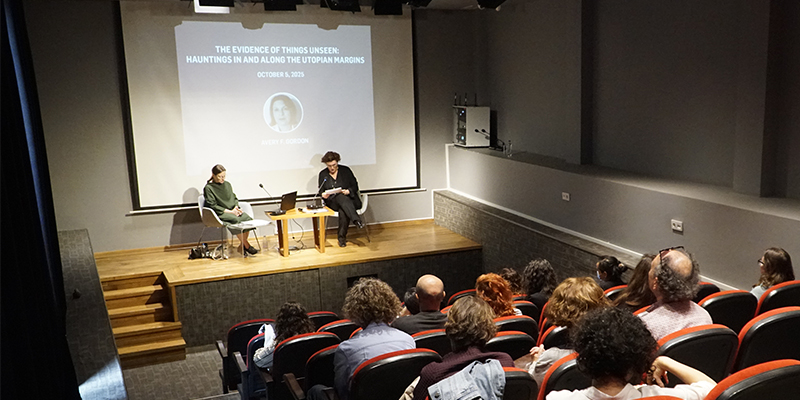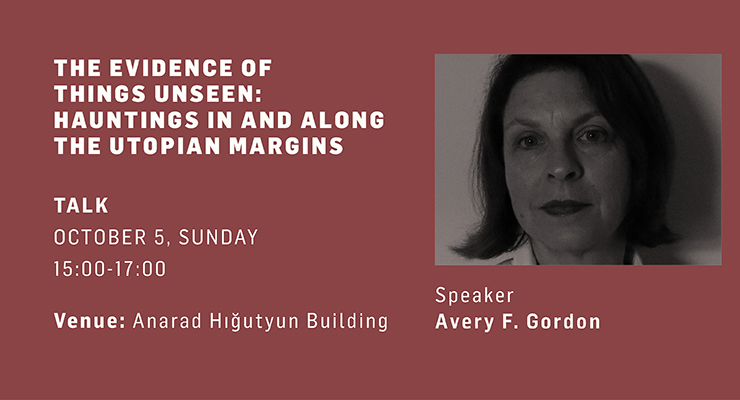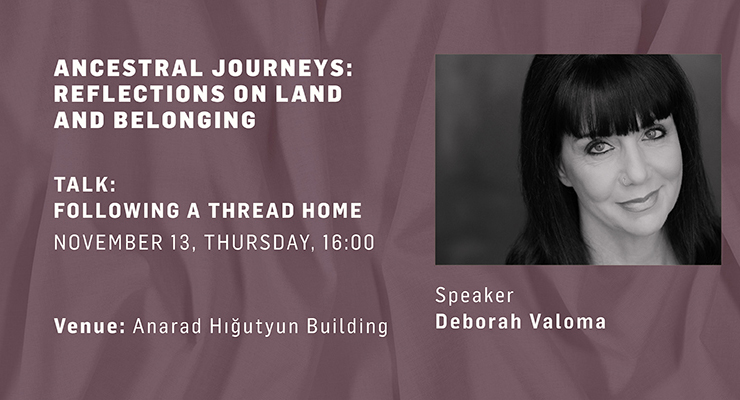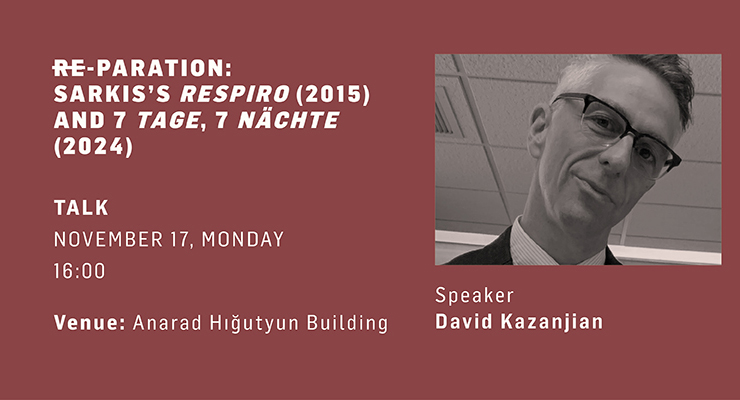On October 5, 2025, at the Havak Hall of the Anarad Hığutyun Building, Avery Gordon discussed her work on histories that refuse to remain in the past—those that haunt the present. Moderated by Ayfer Bartu Candan, the conversation centered around Gordon’s books Ghostly Matters: Haunting and the Sociological Imagination and The Hawthorn Archive: Letters from the Utopian Margins. Titled “The Evidence of Things Unseen: Hauntings In and Along the Utopian Margins”, the event brought together an audience familiar with Gordon’s work to engage in a discussion on ghosts, memory, power, the limits of historical knowledge, and the possibilities, constraints, and methodologies of studying these themes.
Gordon defines "haunting" as a way to understand how historical injustices such as slavery, genocide, colonial violence, and political repression continue to shape the present-even when officially denied or forgotten. Haunting is not merely a metaphor; it is also a concrete social experience, a signal that something hidden remains unresolved. Rather than treating history as a linear or completed process, Gordon invites us to listen to these ghostly presences not with fear, but with ethical responsibility. Her method offers a sociological approach that makes space for imagination-an approach attuned to the invisible and responsive to the demands these “ghosts” place on the living.
For institutions and researchers working on memory, justice, and confronting the past, Gordon’s emphasis on listening to silenced voices provides conceptual and methodological inspiration, particularly in relation to enforced disappearances and the ongoing forms of state violence.
Another key topic Gordon addressed was the concept of the “utopian margin,” which she develops in The Hawthorn Archive. This term refers to individuals and communities imagining alternative futures at the edges of dominant power structures. The book presents a fictional archive composed of letters, notes, and reports, offering glimpses into histories of resistance from figures such as escaped slaves, anti-colonial thinkers, dissidents, dreamers, and rebels. These are not grand narratives of triumph, but fragmented, often suppressed traces of radical possibility. By bringing these archival fragments to light, Gordon challenges what counts as “official knowledge” and who gets remembered. She also proposes archiving affect, ethical imagination, and collective dreaming as a methodological practice.
While Ghostly Matters explores how the past haunts the present, The Hawthorn Archive invites us to consider how forgotten visions of freedom can still shape our future.
Gordon also spoke about her current research on military rebellions that triggered a popular uprising in Korea in 1948, which was violently suppressed. She described memory not just as a matter of loss but also of resistance and possibility. She emphasized that remembering, archiving, listening to ghosts, and safeguarding the sidelined dreams of justice are all forms of political action. She reminded us that memory work is not nostalgic, but future-oriented-that it’s about making room for ways of being in the world that dominant systems try to suppress.
Avery Gordon’s work is not merely a call to mourn, but a refusal to forget. It urges us to take seriously the unfinished struggles and radical hopes of those at the margins, and to allow their haunting presence to guide us toward a more just and imaginative future.




